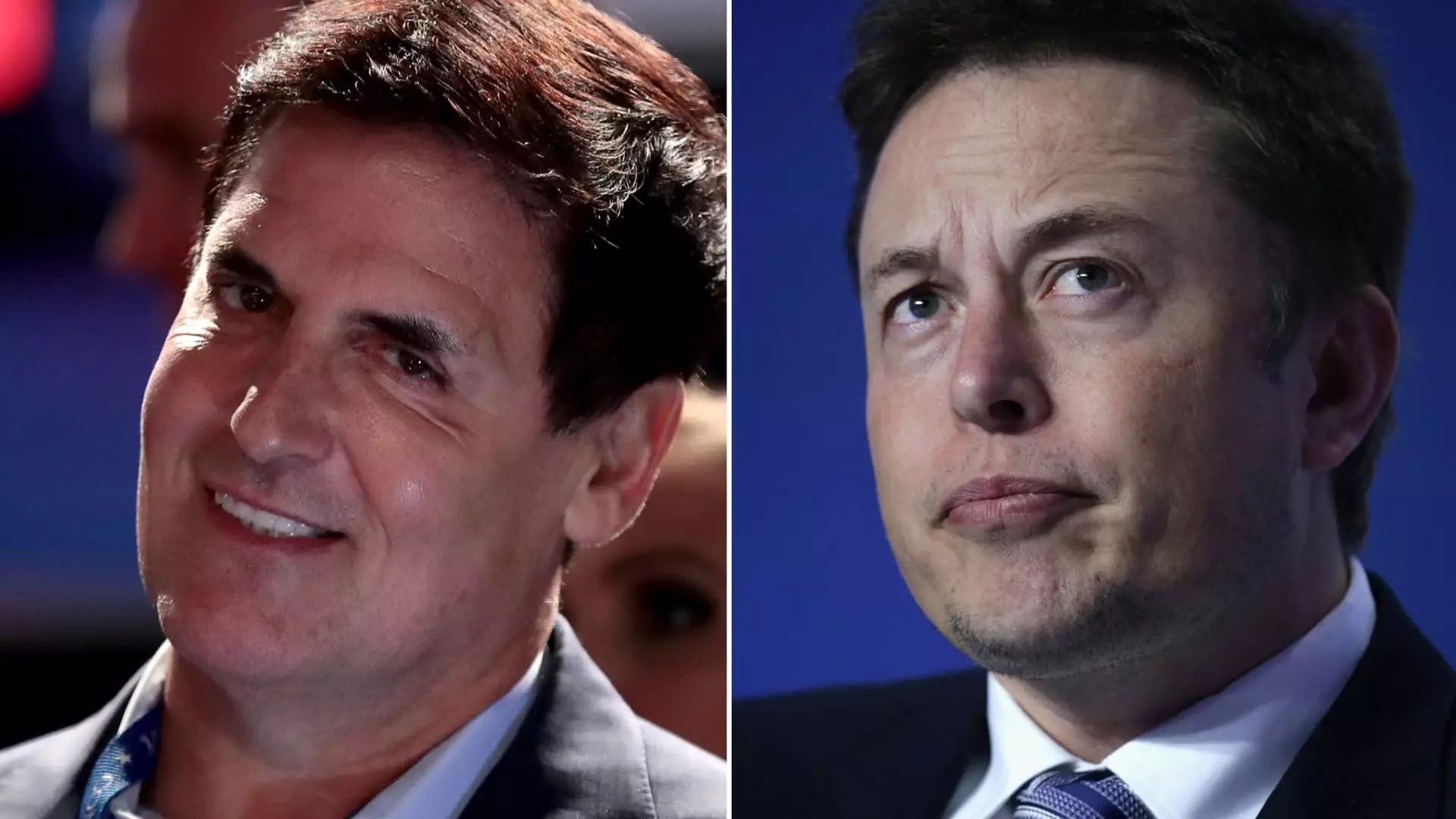In today’s political landscape, the intersections of business and politics often spark significant dialogue, especially among influential figures. A recent exchange between billionaire investor Mark Cuban and Tesla CEO Elon Musk highlights the complexities of these relationships. Cuban’s cautionary words to Musk about the risks of aligning too closely with former President Donald Trump serve as a point of analysis on loyalty, political alliances, and the uncertain outcomes of such partnerships.
Cuban’s warning encapsulates a valuable lesson regarding political loyalty. He remarked that Musk, having supported Trump, might soon find himself in a position where he needs something from the former president. However, Cuban underscored a fundamental principle derived from historical precedents: Trump’s loyalty, he suggests, is self-serving and transactional. This perspective sheds light on the often-volatile nature of political relationships, especially in realms defined by power dynamics. For Musk, who has been a vocal supporter of Trump in recent months, this realization could be a rude awakening, especially considering Trump’s reputation for prioritizing his interests over those of his allies.
The inherent unpredictability within political alliances can lead to vulnerability, particularly for those who may become overly reliant on a single figure or party. As history has shown, many individuals have assisted political leaders only to find their support unreciprocated when it mattered most. The weight of Cuban’s insight lies in its implications not only for Musk but for any high-profile figure considering a political alliance as a means to an end.
Musk’s recent endorsement of Trump marks a notable shift in his political engagement compared to his previous criticisms of the former president in 2022. This evolution raises questions about the motivations behind his support and whether it stems from a genuine alignment of views or a strategic decision to position himself favorably within a political framework. The insinuation that Musk may be preparing to back ideas such as the “government efficiency commission” underlines a desire for influence within any future administration, particularly one led by Trump.
Moreover, Musk’s remarks about immigration and election strategies reflect a willingness to engage in controversial discussions that align with Trump’s extremist rhetoric. His alignment with such conspiracy theories could risk alienating other segments of his audience and stakeholders who prefer a more moderate or apolitical stance from their business leaders.
Cuban’s Support for Harris and Diverging Pathways
On the other hand, Cuban’s outspoken support for Vice President Kamala Harris introduces a sharp contrast to Musk’s political narrative. By positioning himself as a surrogate for Harris, Cuban is taking a calculated risk that could affect his business pursuits and public perception. His advocacy for Harris’s economic agenda, despite criticism surrounding potential corporate tax increases, indicates his belief in a deeper commitment to sustainable business practices over mere profit maximization.
Cuban’s ambition extends to governmental roles, expressed through his interest in joining the Securities and Exchange Commission (SEC). This aspiration implies a profound desire not only to influence business regulations but also to position himself as a key player in the wider economic dialogue. Whether this ambition can be fulfilled remains to be seen, especially in a landscape marked by shifting alliances.
Ultimately, the exchanges between Cuban and Musk encapsulate a broader narrative about the interplay between wealth, influence, and political allegiance. As the 2024 election cycle unfolds, both men navigate a terrain fraught with opportunities and potential pitfalls. Cuban’s caution serves as a reminder of the inherent risks involved in political partnership, particularly when loyalty is in question.
As both billionaires continue charting their political courses, the outcomes of their choices will likely influence not only their personal trajectories but the landscapes of business and governance as well. Their decisions may reflect broader trends in society where business moguls are increasingly viewed as political actors, skillfully maneuvering within and against the tides of power. The future will reveal whether these strategies will result in fruitful alliances or serve as cautionary tales of misplaced trust and failed partnerships.


Leave a Reply